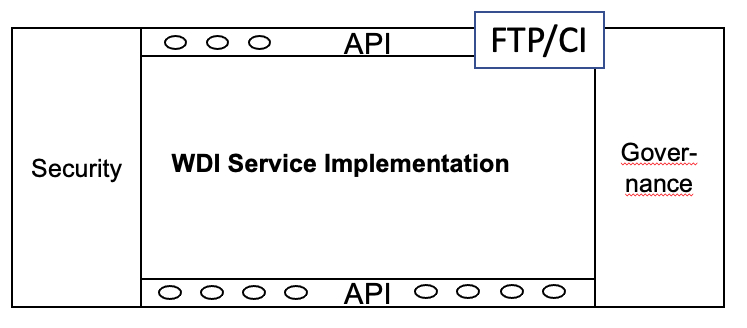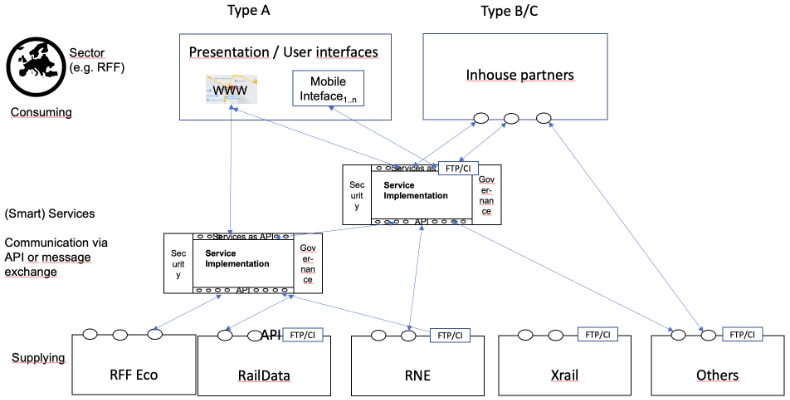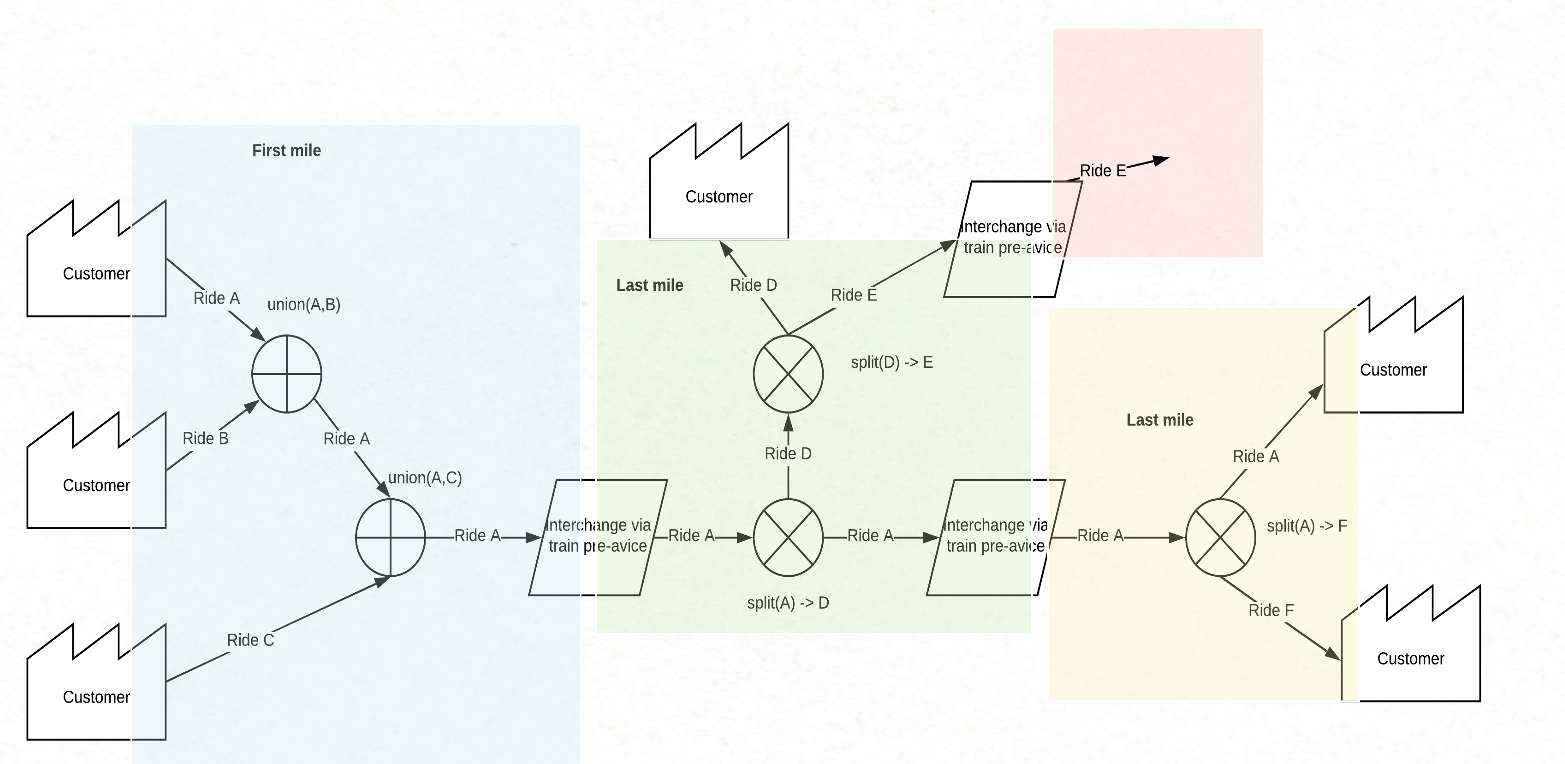WDI Enhancement for Last Mile
| Under construction | - | last edit: 2021-03-22 Oliver Kundt |
Description
The smart service WDI acts as a central point for accessing services which are offered to stakeholders which are currently not connected to the RFF platforms (RailData, RNE, Xrail, GCU Broker).
Each service which is provided by a RFF stakeholder consists of the following components:
- API which offers the service functionality
- Optional component for communication via message exchange
- API which is consuming other services or backend functionality
- Security functionality
- Governance for managing the service
- Service implementation
The eco system in which the service will run is providing basic capabilities which are consumed by the service (master data, security, governance, technical communication, ...).
WDI will implement a presentation layer which enables the actors in the first and last mile to access the services.
Use Case
WDI will start with services for the first and last mile, furthermore for the transit of trains. Further services will be planned based on the discovery sessions with the stakeholders.
This service supports the following use cases:
- The railway undertaking which is operating a train should provide relevant information (concerning consignment, wagons and trains) to his partners which are managing the first and last mile. In return, the partner should be able to provide information concerning wagon and train status in a high quality and via standardised messages and interfaces
- The first and last mile processes should be supported by appropriate user interfaces (web interface, mobile interface)
- The service partner should be able to export documents and information via appropriate functions and service AP
First mile
- First mile partner
- Create task for picking up wagons
- Pick up of wagons, wagon status message "Pulled" to ISR
- Train composition, providing Hermes 30 as train composition message to the train operating railway undertaking which is taking over the train
The first mile partner should mainly check the information which is provided by the smart service. Only in exceptional cases, he might capture a minimal dataset for a wagon which is not current available.
Last mile
- Last mile partner
- Create task for delivery wagons
- Delivery of wagons, wagon status messages "Delivered" to ISR
- Train decomposition, receiving Hermes 30 as train pre-advice message from the train operating railway undertaking wagons
- Train operating railway undertaking
- Send and receive Hermes 30
- Retrieve wagon status via ISR
The last mile partner should mainly check the information which is provided by the smart service. Only in exceptional cases, he might capture a minimal dataset for a wagon which is not current available.
Transit of a train
- Service partner who is managing a train transit
- Receive train pre-advice from previous train operating railway undertaking
- Use the information for managing the transit
- Send train pre-advices to the next train operating railway undertaking
Preconditions
The contractual must provide Electronic Consignment Note information to RailData (based on ECN 1.5).
Basic Services
The smart service needs access to the GCU message broker in order to retrieve current technical wagon information.
Dependencies
Planned Steps
To be realised in 2021
Evaluation
We are partly already using H30 messages to interchange with some other external RUs. Currently, e.g. our subsidiary ITL is almost only using block trains, hence the described first/ last mile services are therefore not applicable to ITLs current business. But this differs in regard of other internal Rus like CCW or DE.





